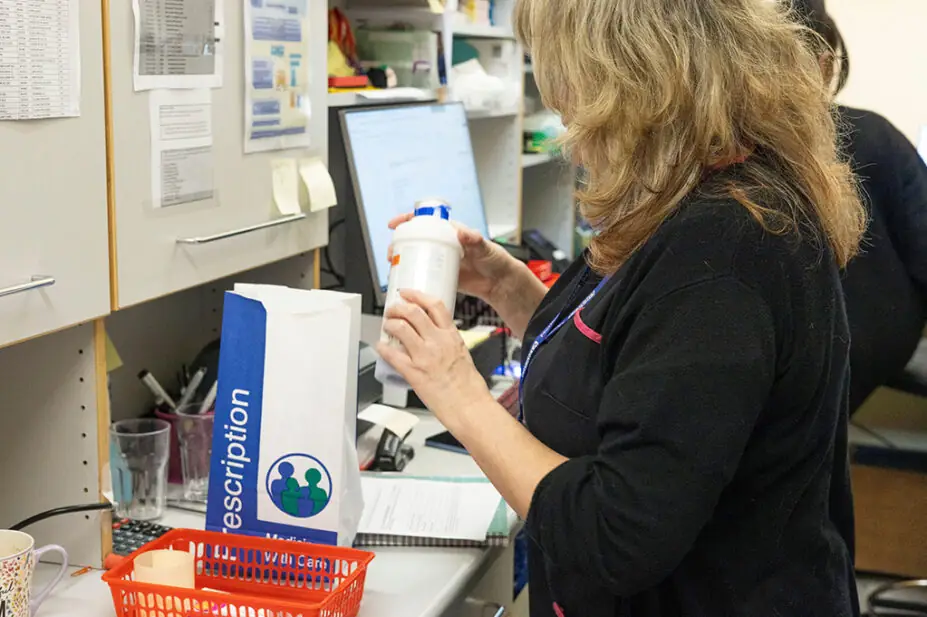
Connect Images / Alamy Stock Photo
Results from a survey carried out by The Pharmaceutical Journal have revealed that 30% of pharmacists have experienced discrimination that has held them back in their careers.
The journal’s salary and job satisfaction survey found that 368 of 1,242 pharmacists from across the UK answered ‘Yes’ when asked ‘Do you believe you have experienced discrimination that has held you back in your career?’
This was most felt among pharmacists who work in integrated care boards or health boards, with 19 out of 55 — or more than a third (35%) — saying they had experienced discrimination that has held them back.
In other sectors of pharmacy, career-limiting discrimination was reported by:
- 15 out of 44 pharmacists from the pharmaceutical industry (34%);
- 11 out of 35 respondents from academia (31%);
- 118 out of 398 hospital pharmacists (29%);
- 60 out of 207 GP practice and primary care network pharmacists (28%); and
- 65 out of 307 community pharmacists (21%).
A subsequent question asked respondents to identify what discrimination had been based on. Of the 400 pharmacists that answered this question, 143 (36%) said that sexual discrimination had held back their careers, while 136 (34%) said that race discrimination had held them back. A total of 119 (29%) respondents said they experienced discrimination based on their age.
Other factors respondents cited as the cause of discrimination included pregnancy and maternity (16%); religion or beliefs (15%); disability (11%); marriage and civil partnership (5%); sexual orientation (5%); and gender reassignment (3%).
One-fifth of respondents (20%, n=81) said that discrimination was based on other factors, such as nationality, weight, accent, class, working part time, caring responsibilities and trade union activity.
Respondents were able to skip one or both of the survey questions on discrimination.
Paul Day, director of membership and communities at the Pharmacists’ Defence Association (PDA), said that while the organisation’s casework and experience matched the survey results “in as much as some pharmacists experience discrimination due to various characteristics”, the most common form of discrimination present in the PDA’s caseload in recent years was that against people with disabilities or long-term health conditions.
He also suggested that the smaller proportion of GP practice and community pharmacists saying they felt discrimination had held them back (28% and 21% respectively) could be because, “unlike academia or hospital pharmacy, there is less career structure into which pharmacists could move, so less to be held back from”, or differences in the “characteristic profile of each population”.
“There is no hierarchy of discrimination, it is all wrong. Racism, misogyny, homophobia, etc all need to be eradicated for the good of all. As we have said before, either we all live in an equal world or none of us do,” he added.
Amandeep Doll, head of professional belonging and engagement at the Royal Pharmaceutical Society, said: “Individuals who are at the intersection of a number of protected characteristics will face additional barriers.
“Through the focused campaigns we have undertaken we have been able to get a better understanding of their needs,” she said.
“We recognise that there’s a significant lack of racial diversity at senior levels in pharmacy. This isn’t fair, and it’s a waste of talent. We believe all pharmacists should have equal opportunities to progress in their careers, regardless of their background or personal characteristics.”
The first ever ‘Pharmacy Workforce Race Equality Standard’ (PWRES) report, published in September 2023, revealed that pharmacists of Black, Asian and minority ethnic origin were underrepresented in senior roles in England, with female pharmacists disproportionately affected.
Responding to the PJ survey results, Nathan Burley, president of the Guild of Healthcare Pharmacists, said: “Unions, such as Unite, regularly represent and support members that experience workplace issues. Unfortunately, these can and do involve utterly unacceptable instances of racism, sexism, and discrimination based on protected characteristics.
“Pharmacy staff should know that they don’t have to face these experiences alone, and can draw on the support of union representatives (from within and external to pharmacy where preferred) to alleviate the stress involved in speaking up.”
1 comment
You must be logged in to post a comment.



When a bid to obtain promotion (or whatever) in one's career fails, it is natural to wonder why. And it is natural to suppose that one's disability / religion / sexual orientation / accent / etc / etc was the reason for failing to gain that promotion. So, I wonder whether the survey was capable of disentangling individual perceptions from actual reasons for those failures to "climb the greasy pole"?